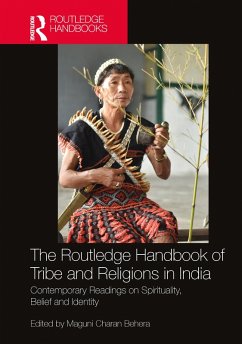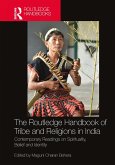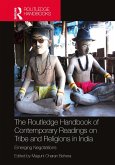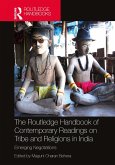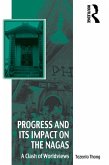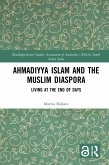Tribe as a social category emerged in India during the colonial period; this handbook departs from the conventional approaches to studying 'tribal religion' and analyses the intersections of spirituality, rituals, gender and identities within tribal religion through a crosscultural and pan-Indian perspective. Tribes in India follow various religious denominations including Buddhism, Hinduism, Islam, Christianity, and traditional indigenous faiths. The chapters in this volume provide insights into the cross-cultural religiosity of tribes via ethnographic accounts and the study of animism, life cycle rituals, ancestor worship, shrines and religious institutions, revivalism, religious identities, religious conversion, transcendental religious spaces and the space for gender, identity and politics within religious traditions. It also discusses conflicts, contestations, anxieties within and the politics of religious traditions and identities in India and how tribal communities and the state negotiate with these issues.
This and its companion handbook, The Routledge Handbook of Contemporary Readings on Tribe and Religions in India: Emerging Negotiations, provide a comprehensive look into the religious life and practices of a very diverse group of tribes in India. This book will be of interest to academics and researchers working in the fields of religion, anthropology, indigenous and tribal studies, social and cultural anthropology, sociology of culture, sociology of religion, development studies, history, political science, folkloristic, and colonialism.
Dieser Download kann aus rechtlichen Gründen nur mit Rechnungsadresse in A, B, BG, CY, CZ, D, DK, EW, E, FIN, F, GR, HR, H, IRL, I, LT, L, LR, M, NL, PL, P, R, S, SLO, SK ausgeliefert werden.
- Professor T. V. Kattimani, Vice-Chancellor, Central Tribal University of Andhra Pradesh, India
"The handbook is an important contribution to the topic of tribe and religion with a shifting focus from conventional understanding to appreciation of emerging dynamics. Traversing through tribal communities in varied eco-cultural settings, and by examining religion in the process of interaction and intellectual interpretation; it brings into perspective their unique experiences and our understanding. The chapters in the handbook are impregnated with insights to engage the readers critically to multidimensional and multifactorial interactive process of religion and tribal response thereof".
- Dr Jumyir Basar, Professor and Director of Arunachal Institute of Tribal Studies, Rajiv Gandhi University, India
"Tribal religion, the living tradition of the primal human belief system, flourished in a wonderful harmony between humans and various elements of the Nature by manifesting a philosophy of togetherness. However, the perspective is absent in present tribal religions subsequent to encounter with other cultures and emerging new analytical concepts. The missing perspective is obvious in the papers included in the handbook edited by Professor M. C. Behera which cover several tribes from different regions of India".
- Dr Hari Ram Meena, Adivasi writer and former IPS, India

